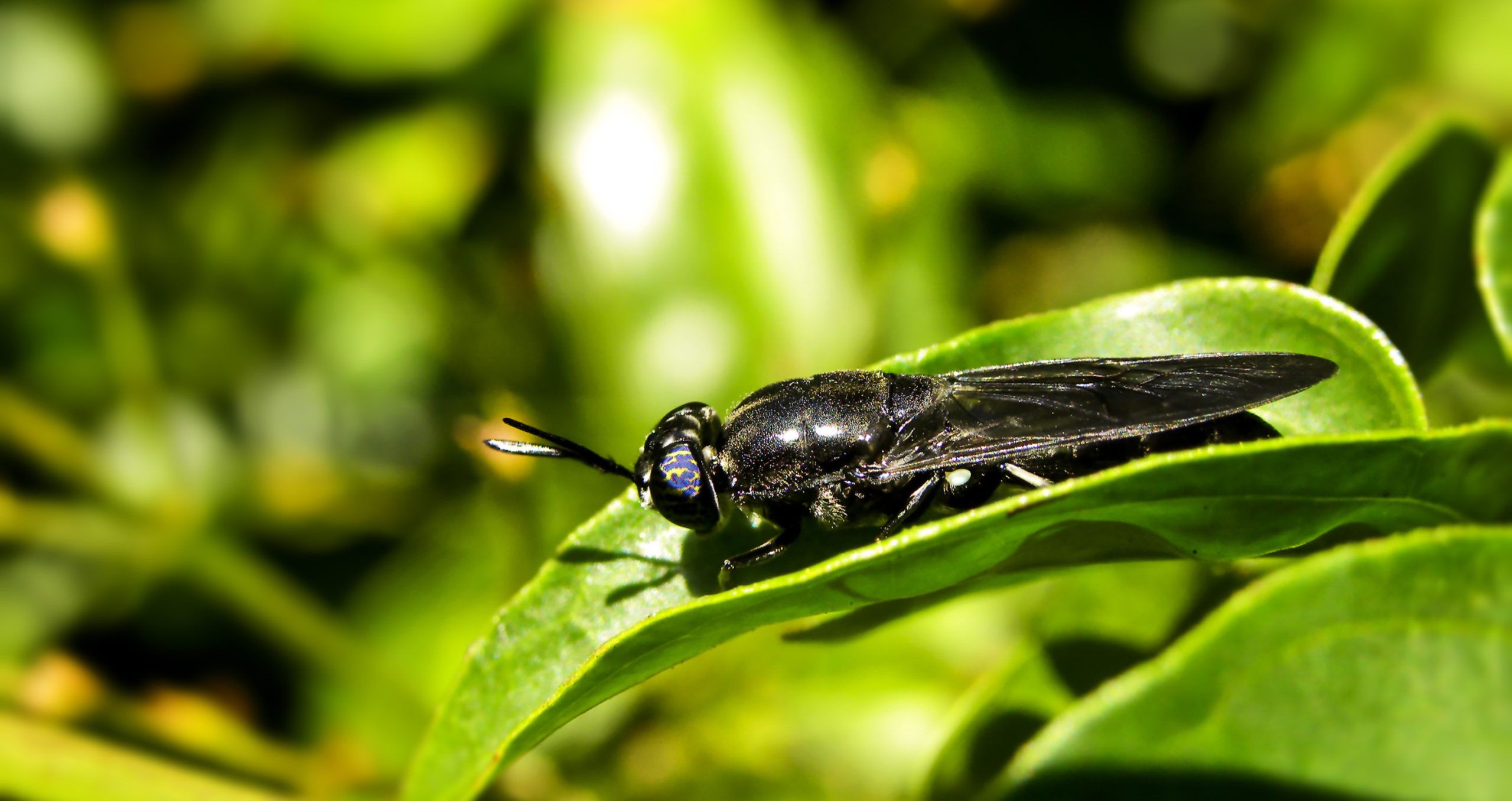Protix, a Netherlands-based company, has raised €45 million ($50.5 million) in equity and debt funding to expand its insect farming business. This is the largest investment in the nascent insect farming industry to-date, according to Protix and its investors.
Dutch food and agriculture bank Rabobank invested in the round alongside Aqua-Spark, the sustainable aquaculture investment fund, Dutch government-backed Brabant Development Agency (BOM) and other private investors.
Protix farms insects predominantly for animal and aquaculture feed, with feed products in over 12 countries, ranging from pig and poultry to pet food specialties. It has four products — feed ingredients Protix Protein X, Protix Lipid X, Protix Chitin X, and a fertilizer Protix Flytilyzer X — which are all currently derived from Black Soldier Fly (BSF). It is also moving into the food sector.
Insects are increasingly seen as a viable and low-impact protein alternative, because they can be reared on waste and are much more resource efficient versus other sources of protein and feed such as soy, corn, forage fish and meat.
Aqua-Spark, which is investing in Protix for its potential to replace fishmeal with insects for aquaculture feed, had been looking deeply at insect production for a long time, surveying over 45 insect producers globally, according to Mike Velings, founder of the Dutch open-ended fund. Aquaculture feed demand is set to increase eight times before the end of the century, according to Aqua-Spark, in what some analysts value as a $100 billion industry, where neither wild forage fish nor soy are viable long-term solutions.
“We took the time to find the right partner and one that could take this to scale because we think insects have the potential to really become a mainstream ingredient in fish feed,” he said. “But the main problem for us in looking at the sector was the ability for these players to scale, because that’s really not easy.”
Insect farms are tough to scale because they are capital intensive; operators need a lot of capital to build the insect factories in what Velings calls a “chicken and egg situation” where you don’t have the offtake to get finance to pay for construction, but you need the finance to get the offtake.
Securing feedstock — the waste you feed the insects such as unsold fruits or grain byproducts — can also be tricky in the right quantities, he added.
Protix cofounder and CEO Kees Aarts, a former McKinsey & Co employee, says that Prolix has cracked the scalability challenge by optimizing the three consecutive processes of industrial insect production: breeding, rearing, and processing.
“Through advanced data monitoring and proprietary technology, we’ve been able to optimize these processes,” he told AgFunderNews. “The combination of highly talented people, data infrastructure, and automation have created modular designs that can scale quickly and produce at the highest standards.”
The technology that Prolix has developed over the past eight years is of key importance to the scalability and success of the business, according to Velings, who believes Protix is head and shoulders ahead of the rest in the industry.
“They are incomparable with other names in the sector, sometimes because they’re raising a different type of insect, but also because they’re at a very different stage of development,” Velings added.
Protix would not divulge much about the technology used in its farms, but it involves a completely controlled environment, monitored and automated with sensors, much like you might see in indoor vertical leafy greens farms.
“We started with a rigorous and well-designed trial and error phase along all stages of the insect growth. We stand out because of the combination of technologies, operations, and R&D,” said Aarts. “Our differentiation lies in that golden combination of a range of technologies, operating protocols and talented people, augmented by the sensor-data infrastructure.”
Also vital to its scalability and technological development going forward, is the company’s joint venture with Swiss food technology group Buhler.
Announced earlier this year, the JV, Buhler Insect Technology Solutions, will manufacture and sell equipment and provide know-how to any feed or ingredient producer in the industry in an effort to scale the industry overall.
The JV will leverage Buhler’s generations of engineering knowledge and Protix’s insect rearing operational expertise, which involves proprietary equipment and processes, including methods for separating and extracting proteins and lipids from insects.
“It’s all about the modularization of proprietary Protix and Buhler technologies and the development and supply of insect production technologies and equipment,” Aarts said of the JV. “Together, we can develop both sustainable and cost effective solutions for large-scale insect producers and processors that cover the whole value chain. Protix will play a supporting role in the long run by providing young larvae to customers of our joint venture and operational support services. This way the industry will accelerate vastly due to setting the dominant design, standards of operations and increase of total production capacity. We have seen a strong increase in demand over the last months since the nascence of our joint venture.”
Protix will use the funding from this latest round to expand its production capacity, especially for aquaculture, deepen its biological and technical R&D, and diversify to other markets like food. It is also on the lookout for potential M&A opportunities. The company wouldn’t disclose exactly what types of companies it was looking to acquire, but Aarts said it would make acquisitions that strengthened its position in the industry.
Protix has now raised €70 million to-date.
Other insect-for-feed farming businesses to raise funding in recent months include French startup Ynsect, which raised $15.2 million in Series B funding last December, and AgriProtein, a South Africa-based business, which raised $17.5 million in the same month.





